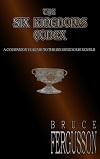There’s a quote, attributed to the father of the late novelist, Ken Kesey, author of One Flew Over the Cuckoo’s Nest, and Sometimes a Great Notion: “Good writing ain’t necessarily good reading.”
Good writing is more easily defined than good reading. But for me the best measure of a ‘good read’ is when the book–its people and the world they inhabit, whenever, wherever and whatever it is–creates such a spell that I forget about my world and certainly the author’s presence.
A cinematic equivalent of this is the point in a movie, starring a well-known actress or actor, when I forget just who it is playing the hero or heroine.
Where does this magic come from?
How does a writer summon the lightning needed to animate his monster?
Make-up, costume design, a polished fake accent help are prosaic details that help in a movie. Or exhaustive detail and backround for the people in a book. The author sits back, pleased: “Now THIS is characterization!”
Nope, that’s not enough.
It isn’t enough to simply know your characters very well.
I recently finished a novel that was a mega-bestseller, with thousands of reviews on Amazon. The library waiting list was so long I had to wait six months for my turn. Now, the writing was good, uber-clever; the kind of stylish, witty prose that makes New York editors drool and impresses a lot of readers. Machiavelli couldn’t have done better plotting this story of a marriage gone VERY bad, a steroidal War of the Roses. Never mind the dueling first-person narratives, both equally unreliable; or laughable implausibilities, or the “I’ve-run-out-of-gas-ending”.
I was SOOO glad I checked the book out from the library instead of buying it. I began skimming after a hundred pages Obviously more beaches were filled with people liking this one than not. But I couldn’t have cared less what happened to the primary characters. It’s hard to generate much tension or suspense if the reader remains distant from the people in a book. Me, I gotta be close enough to smell their sweat, feel their trembling, hear their whispers.
What happened? The author didn’t care a whit for her characters. She obviously spent a lot of time and energy on them but they remained, ultimately, an excercise for showing off. See how clever I am! See how I move my carefully detailed marionettes here, then there! See how dexterously I manipulate their strings!
She forgot that the primary relationship of an author is to her characters. Love them, hate them (obsession is even better) but don’t treat them as mere chess pieces. Carving them out of your imagination with painstaking craft is not enough. You can’t make things easy for them; far from it. But you have to want something more for them: the best of fates or the worst. You have to want to wash their feet or wring their necks. You may think that’s easier to do if you’re pulling on their strings but it’s the opposite.
To source the magic you have to do more than artfully carve or stitch together your creations. You have to imagine them without strings, or cue the lightning.
Just ask Geppetto.
Or the other guy–but knock loudly first and don’t stare at his assistant’s hump.


